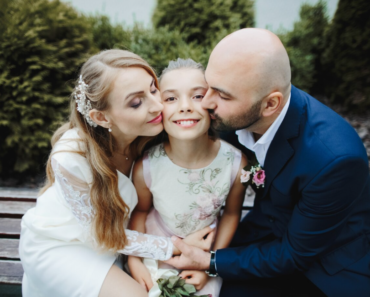
Affection can be shown in ways other than hugs and kisses.
After being a stepdad for thirteen years, it didn’t feel odd at all to welcome my wife’s sixteen-year-old niece into our home. My step kids are grown and out of the house and the two kids my wife and I had are now 11 and 8, so a teenager in our home again has come with some adjustments. We encouraged her to get a job, and she did. We are now the taxi to and from work. As she gets out of the vehicle, we roll down the windows and tell her that she is awesome. We yell it out for everyone to hear. We go a little overboard and then tell her to show us her sunshine, and she puts her arms in the air with confidence.
The first time we did this, we wondered if she was going to be embarrassed, but she wasn’t. My niece feels loved each time we give her affection in this way. After 2 months of shouting our affection from the vehicle, our eleven-year-old son said it was time to stop. Every once in a while, we surprise her and give a good shout to proclaim our affection for her.
Affection is not The Same as Love
Common sense knowledge to love is what most people have. We know that we are supposed to love our family members. Often, we have a strong sense of sticking by our family members through difficulties. Many families have a strong sense of loyalty and duty. Family affection is not based on love, but on genuinely liking the family member. I will be the first to admit that there were times it was difficult to like my step kids. That doesn’t make me a bad parent; it makes me a real parent. Even biological parents can have a tough time liking their children at times.
Children need to see their parents being affectionate towards each other. Initially, it can be awkward for step kids to see their biological parent showing affection to someone other than their other parent. Be aware of that and don’t be forceful. Gently let them see that you are not replacing their other parent or them. Early in my marriage, my young stepsons would feel in competition with me. My step daughter’s view of relationships has formed because of the affection she saw between her mother and me. She saw us laugh together, hold hands and sit together.
Over time, they felt more comfortable with me and saw that my role in their mother’s life was different from theirs. The daily modeling of kindness between her mom and I (her stepdad), helped her to trust me more. My wife and I have worked hard to show my step kids that in our family, we enjoy our time together. When we are together we want them to feel safe, loved, secure, appreciated and accepted. This grows the bond of affection within our blended family.
Family affection starts first thing in the morning. Waking your children up with a kind word is a good way to start the day. If you don’t see your step kids in the morning, every once in a while you can write a note and stick it on their bathroom mirror. If you have an opportunity to drive your stepchild to school, you will probably have great conversations. Being available for family dinner is a way to show your affection. It is the single best daily opportunity for a family to be together. At our dinner table, each child takes their turn telling what the highlight of their day was and their lowlight.
During family vacations, most people feel more relaxed. The parents don’t have to wake up early and go to work, no school for the kids, and the scenery is new. Building good memories in a blended family is important and a way to show affection. Vacations don’t have to be long, extended time away. A hike after dinner or a trip to an ice cream shop as a family can build many memories.
Here are some tips:
- Learn to be a good listener to your child/step child.
- Being a good listener will help with the bonding process. Model affection for your kids.
- Ask questions to your step kids.
- Be available to talk when they are ready.
- Show interest in what interests your child.
- Be positive toward your stepchild.
My step kids felt awkward when they first saw me show affection to their mother. I wanted to be respectful and not force them to immediately be comfortable with our physical affection. I was careful in how much public affection I showed my wife until my step kids were ready to welcome me.
Asking questions to your child or stepchild opens the door for intelligent conversation when they feel like you really care. A list of questions without the intent to get to know your stepchild is pointless. If you aren’t a good listener, learn to be one. Listening to your child/stepchild will reach their hearts and you may win a few points.
Just when I’m done for the night, our teenagers would come into our bedroom to talk. Often times it wasn’t a life-changing subject that they needed to talk about, but it was about being available to them and not having the right answers for them.
While listening to your children, you will find out what their interests are. Ask them to teach you something that they are good at and schedule a time to do it. They will feel on top of the world if they see their step parent showing interest in them. The more you let them open up, the more consistently they will come to you to talk.
Your stepchild does not need any more negativity in their life, so choose to be a positive force. Take advantage of the fact that you are the step parent and don’t have to give the punishments (that’s for the biological parent to do), and create a unique relationship. Be real when you are communicating with your step kids, they know the difference between fake and genuine. Your stepchild will receive the affection you are showing when they feel it is genuine, and they really want to accept what you have to give.







